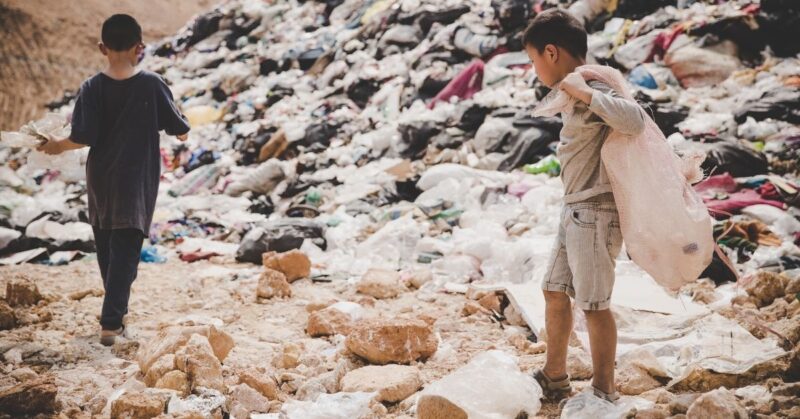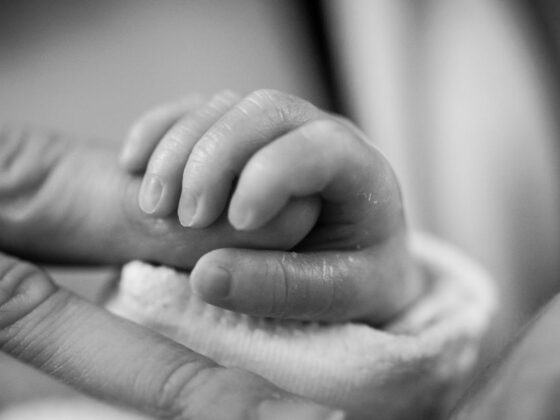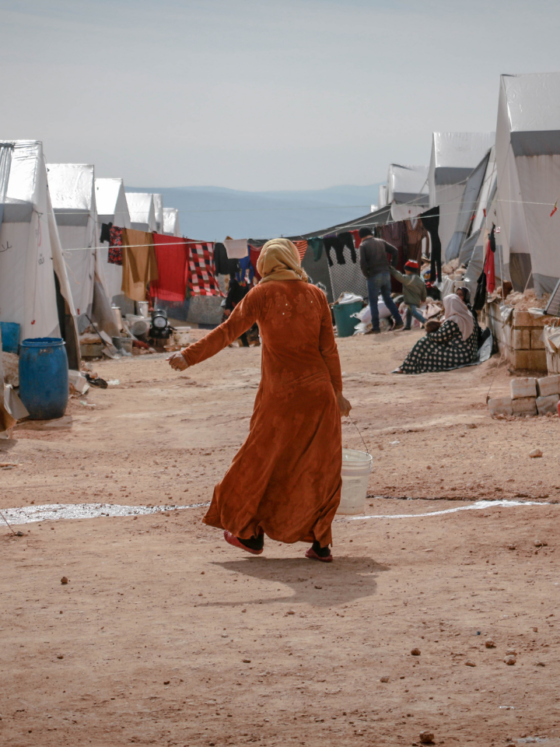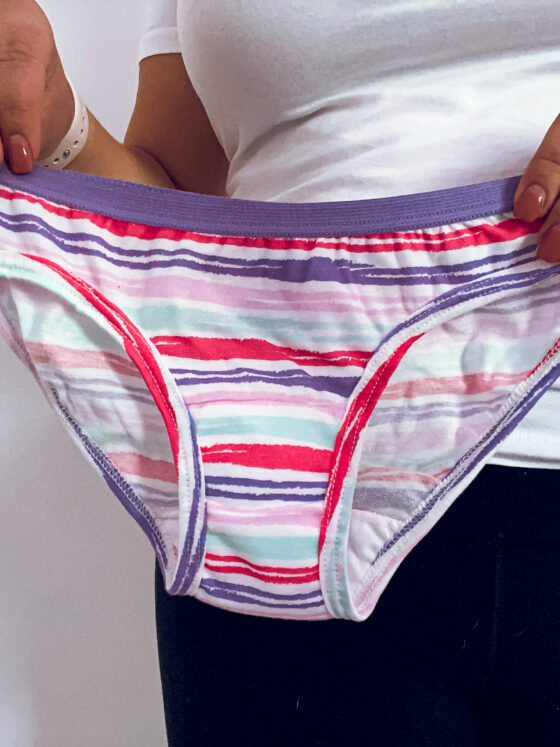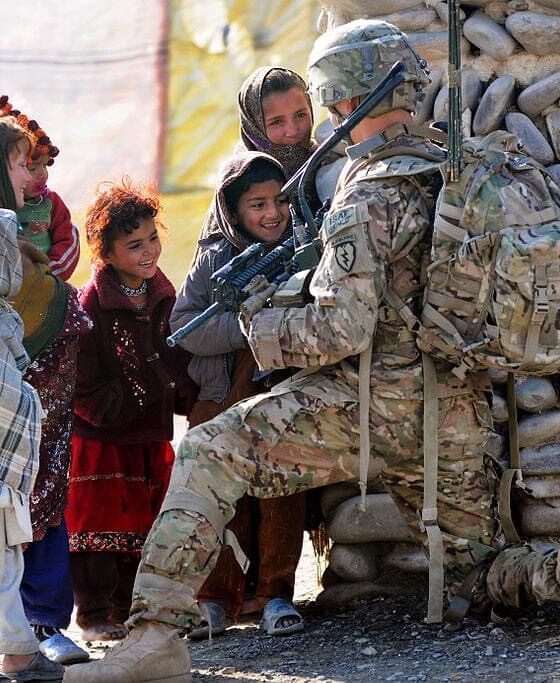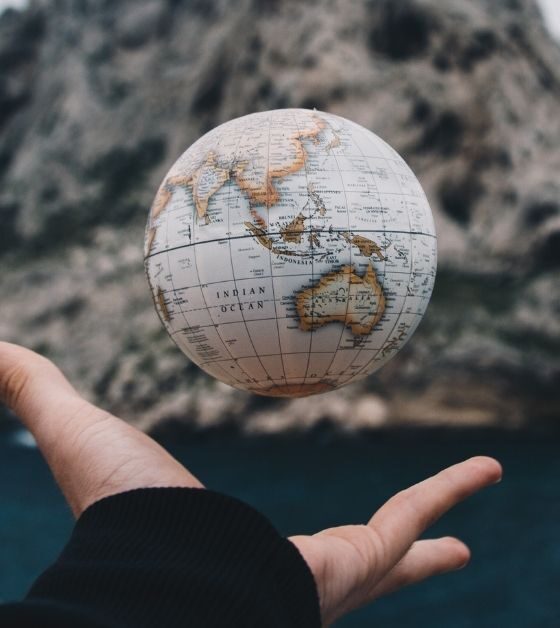Dear Readers,
When I began my research on factors that shape contemporary children’s rights policy, I made the assumption that the primary driving force behind children’s global rights atrocities would be directly linked to the health of the economy.
I wasn’t wrong (and we will talk about that next week), but when root causes were boiled down even further than the economy, almost every children’s rights violation in existence can in some way be connected to or is exacerbated by climate change and environmental instability.
SPEAKING TRUTH
It’s this ugly truth we don’t want to believe because the moment we accept it as truth, we become responsible. We become responsible for our consumption, our global participation, and the second and third order effects of our actions…or inactions. But it is one of the most important truths we must come to believe if we care about humanity.
Climate change is not merely devastating because of the mass ecosystem imbalance it is causing, rising sea levels, or because of those videos we hate to see of animals suffering. It is devastating because it not only causes measurable die off of human populations, alongside the role it plays in promoting child sex trafficking.
Environmental instability has a profound impact on water, food, security, health, education, human migration. It has the greatest effect on those who have contributed to the environmental condition the least, and have the most limited access to the world’s resources.
KNOWING THE RESEARCH
It is important to note that while research in the area of environmental impact (on all things) on children is both new and limited, research tells us that children disproportionately feel the effects of climate change as they are biologically prone to negative effects from both stress and deprivation. Additionally, they are most effected by the second and third order effects of climate change as they have the least access to resources, and often times have no say in their rights or conditions. Research will continue to evolve as the environment changes, and further information is needed to draw stronger associative lines.
OVERCONSUMPTION
I am going to insult the complexity of overconsumption by making this section so brief, but I would not be doing this week’s post justice by merely saying “we overconsume and this is causing climate change.”
As of a 2004, 1.7 billion people belong to the ‘consumer class,’ according to National Geographic.
The consumer class is growing as developing countries have several regional markets eligible for expansion. This is a class of people whose lifestyle is dedicated to amassing non-essential goods such as clothing, cars, electronics, and other such luxury items.
While the demand for goods and services can be attributed to the expansion of jobs and the economy, the growing consumer appetite for owning luxury goods has compromised the natural systems we depend on not only to produce these goods, but to live a healthy and balanced existence.
The more we purchase, consume, and dispose of the more water we must dirty, the more trees we must rip down, the more drilling we must engage in and the more land we must dedicate to factories and landfills.
This has a devastating impact not only on natural ecosystems, water supplies, and natural resources, but also on the welfare of people, most widely children. We will talk about this more in the next section.
Deforesting, drilling, and polluting as a means to meet consumer demands has been a key contributor to climate change. Temperature changes, ecosystem die-off, poor air quality and rapidly increasing natural disasters which have resulted from these choices is what we call “climate change.”
Climate change is rooted in overconsumption. The mentality to consume and throw away at will, to replace that which is not broken, to engage in purchasing fast fashion and to own more cars and to have the newest phone on the market has put an unsustainable and unprecedented demand on the environment.
It has led to natural disasters which can be linked to the growing laundry list of humanitarian crises. As the rich get richer and collect more non-essential trophies, the poor get much, much poorer…and the effects this devastation has on people is creating rapidly spreading humanitarian crises which include child sex trafficking. We will talk about that shortly.
CHILDREN & THEIR RELATIONSHIP TO THE ENVIRONMENT
It is important to note that this is what we know so far, but I am eager to continue to study and share with you as I grow in this research and knowledge base.
Here is the disjointed information we know.
Climate change causes water and food insecurity. Food and water shortages add stress to families trying to provide for their children, especially in impoverished areas. Families that cannot provide for their children are more likely to sell their children, more often daughters as child brides. When a child bride is sold, the husband becomes responsible for the female child’s care and the family receives a dowry which helps to care for the remaining children, and the family has one less mouth to feed.
Climate change is forcing people away from their homes in search of clean water, food sources, reliable shelter, and safety. This is creating a rapid increase in human migration patterns and a growing statelessness crisis. (For the purposes of this post, this is separate from refugees seeking asylum from war.) As migration and statelessness increase, more children lack access to the rights and resources provided to them when they are nationals of a country. These undocumented children face exponentially higher risk of being used for child labor or sex work because they are undocumented in any country, and have no claim to protection from any country. When they have no claim to a country they have no protections, and they lack access to recourse if/when their rights are violated.
There is a positive relationship between child migrants and all forms of child labor.
Climate change leads to natural disasters. These natural disasters create complex humanitarian emergencies which affect migration, statelessness, child development, protection, participation, and right to survival. The humanitarian crises that result from natural disasters exponentially increase children being exploited for sexual purposes as well as for war.
Drought disproportionately increases the work for female children. Further research is needed to elaborate on these particular findings.
SURVIVAL
We would all love to blame traffickers for the ugly, immoral, and growing problem of child sex trafficking.
The problem is that when we blame, we externalize a problem that we are indeed part of creating with our acts of overconsuming. When we externalize problems, we separate the problems from ourselves. Externalizing a problem is a powerless approach which lacks the dynamic responsibility necessary to address the root causes of this growing crisis.
The relationship between humans and growing environmental devastation has fortified the existence of child trafficking as a means of survival for children and families. While trafficking is an incredibly lucrative business, it is crucial to realize that the prospect of survival often lures children into sex trafficking.
Parents sell daughters as brides to survive starvation. Children bypass education to go to work to help families survive. Impoverished children are lured into sex work with the promise of money and food. Whether engaged by force, choice, or by way of lacking protection, each form of engagement can be considered an act of survival that comes at the cost of children’s human rights and dignities.
It is this aspect of survival that we must ultimately consider.
It is the environment we have created with our overconsumption that has forced people to consider means of survival that disregard fundamental human rights.
And it is why you need to think long and hard about the items in your Amazon cart right now.
The most sustainable purchase is the purchase you do not make at all.
People’s need to survive their own devastated environment created by the hands of over-consumers gives the child sex trafficking business an endless supply of future rape victims.
Think about that.
This is what we are up against.
This is overconsumption.
Your favorite semi-vagabond writer,
Taylor Patrice
